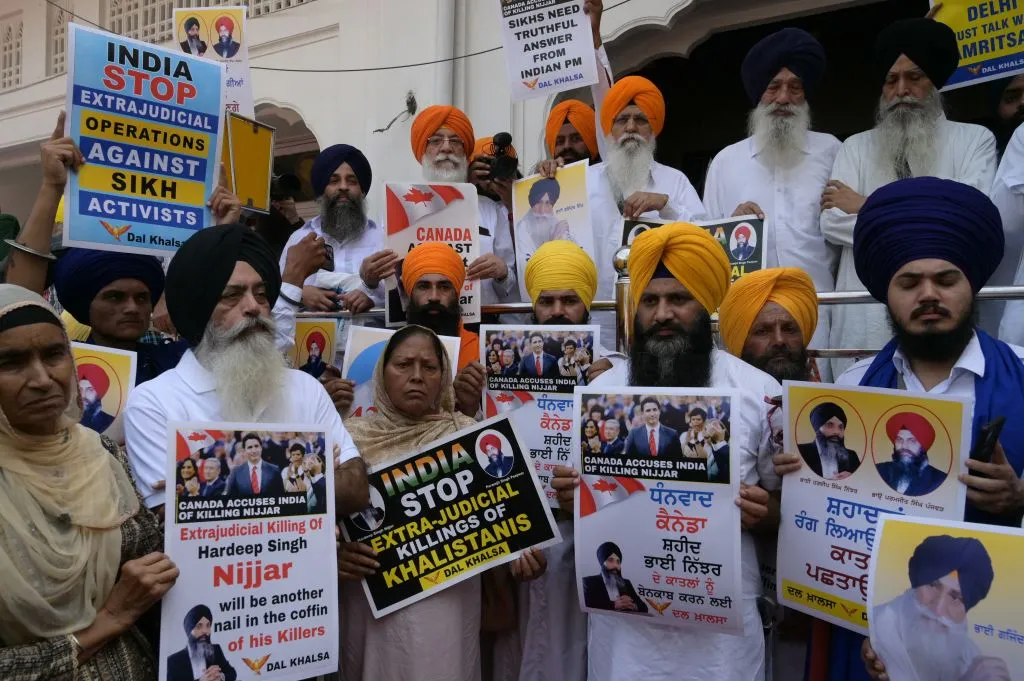
Despite being the largest democracy, India has been characterized with human rights violations and curtailed liberties of monitories under its jurisdiction. As Prime Minister Modi’s administration began a new crackdown on the Sikh minority, the wound left behind by “Operation Blue Star,” a military operation initiated in 1984 that killed thousands of Sikhs, remains a fresh.
The Rashtriya Swayamsevak Sangh(RSS) mentored Bharatiya Janata Party (BJP) is now specifically targeting Sikhs in India other then the oppression of Muslims and Christians.
Challenges Faced by the Sikh Minority in India
Such actions by the Modi Government toward minorities depict India’s intention to become a ‘Hindu National State’, which is a deep contrast to Gandhi and Nehru’s great vision of a secular India. Sikh minorities concentrated in Punjab are more subjected to the Indian Government’s violence, especially ‘Waris Punjab De’followers along with other Sikhs have been subjected to harsh persecution. This action has drawn criticism from the Sikh community, both in India as well as abroad.
Also Read: Indian Farmers Movement: ‘Chalo Delhi’ March
In addition, there are grave apprehensions that Amritpal Singh would be eliminated in staged Police encounters to dial down the Sikh Rights Movement. Amritpal is one of the prominent leaders of the Khalistan Movement, that gained traction sequel to massive killing of the Sikh community in the 1940s. Authorities conducted raids at a Gurdwara and a drug rehabilitation facility, run by the “Waris Panjab De” in Amritsar. There are worries that the Police would file fictitious criminal charges over many of the Sikhs, who were detained during the current searches. In addition, a significant number of Sikhs have already completed their terms awarded by the courts but remain illegally imprisoned in various Indian prisons.

As the founding leader of “Waris Punjab De,” Deep Sidhu passed away, and Amritpal Singh Sandhu assumed leadership of the organization. Soon after, the state apparatus began harassing him by revoking the weapons permits of his guards and imprisoning his friends. Section 144 was implemented on March 18, 2023, before the beginning of the crackdown, in which mobile phone service was blocked in the districts of Sri Muktsar Sahib and Fazilka. Many Sikhs were detained by the Police, including Amritpal Singh and his other associates.
The crackdown that is tormenting the Sikh minority in Indian Punjab in particular and India, in general, has drawn the ire of the Sikh diaspora.
Mayhem has unleashed abroad as to present the letter of complaint to the Indian ambassador, members of the Sikh diaspora in London walked the streets and congregated before the Indian High Commission. As a result, an angered Sikh community member attempted to replace the Indian flag with Khalistan’s flag. One such individual Avalai Singh Khanda, died in London due to suspected poising in the a hospital in Birmingham, UK on 16th January, 2023. The social media accounts allegedly linked to Indian Intelligence tentacles off and on keep boasting claims of killing Sikh activists both inland and overseas soils.
The World Sikh Organization of Canada (WSO) denounces so-called security actions in Punjab, which aim to detain Amritpal Singh. “Punjab is now under state-wide cordon and search operations. We are also extremely worried that the commotion around Brother Amritpal Singh’s arrest, which may be utilized to set up a fake encounter and justify his unlawful killing. Throughout the 1980s and 1990s, the Punjab police frequently employed this strategy to put an end to Sikh activists. In addition to requesting the quick restoration of civil rights and internet connectivity in Punjab, we urge the Canadian Government to hold India accountable for its actions”, WSO stated in a press release.
Also Read: Rise in India’s Covert Operations on Foreign Soil
Gagmeet Singh, one of the New Democratic Party’s leaders in Canada, said: “I am deeply concerned about reports that India has suspended civil liberties and imposed an internet blackout throughout the state of Punjab. These draconian measures are unsettling for many given their historical use to execute extrajudicial killings and enforced disappearances during the 1984 Sikh Genocide”. It is not the first time in history, when Indian authorities are using force against unarmed people, especially minorities.

Indian Government’s Human Rights Abuses Against Minorities
There are several events in Indian history, where Indian Government has been directly involved in conducting attacks on civilians.
The Indian Government is mistreating the Sikh Community and Muslims of India Illegally Occupied Jammu and Kashmir (IIOJ&K), in an akin manner.
The fate of Indian minorities is relying on the efforts of the international community to restrict its fascist administration’s brutalities. It was an opportunity for major stakeholders of the international community to witness the issues of human rights violations, the right to self-determination and inhumane killings of Muslim and Sikh minorities during the G20 Summit, which was held in Kashmir under the presidency of India.
Amidst the challenges faced by Sikhs within India, the diaspora encounters a distinct yet equally distressing issue—Sikh murders in foreign lands. Sikhs, celebrated for their tight-knit community bonds and industrious spirit, have migrated to various countries in pursuit of better opportunities and a peaceful life. Regrettably, they have not been immune to the alarming rise in hate crimes sweeping across several nations. The Sikh community abroad, recognized for its contributions to various societies, grapples with the stark reality of targeted violence and discrimination, underscoring the global scope of the challenges faced by this resilient community.
As the diaspora voices its grievances, particularly in locations like London, where members gathered to protest and even attempted to replace the Indian flag with Khalistan’s flag, the global Sikh community remains united against the perceived injustices.
The World Sikh Organization of Canada (WSO) has vehemently condemned the security actions in Punjab, expressing fears of a potential fake encounter to justify the unlawful killing of individuals like Amritpal Singh. Simultaneously, political leaders like Gagmeet Singh in Canada voiced deep concerns about the suspension of civil liberties and internet blackouts in Punjab, drawing parallels with historical instances like the 1984 Sikh Genocide.
The international community, with major stakeholders who gathered at the G20 Summit at Kashmir under India’s presidency, witnessed a clear requirement to address the broader issues of human rights violations, the right to self-determination, and the inhumane treatment of not only Sikh minorities but also Muslim communities in Indian Illegally Occupied Jammu and Kashmir (IIOJ&K). The fate of Indian minorities, both within the country and abroad, hinges on concerted efforts to hold the Indian Government accountable for what is perceived as a continuation of oppressive policies and brutalities.
The opinions shared in this article reflect the author’s personal views and do not necessarily align with the institution’s official stance.





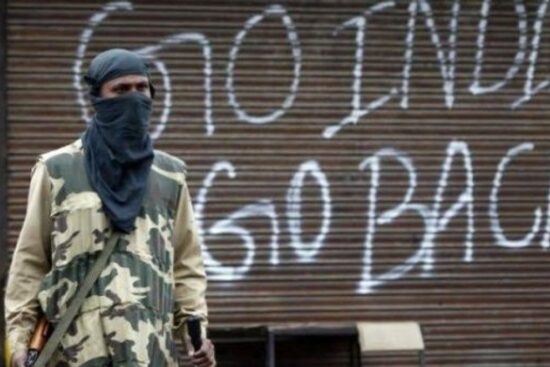
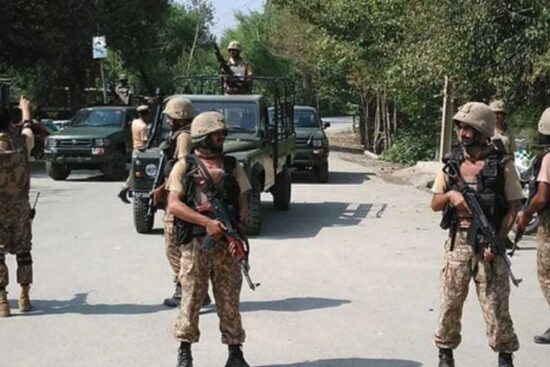
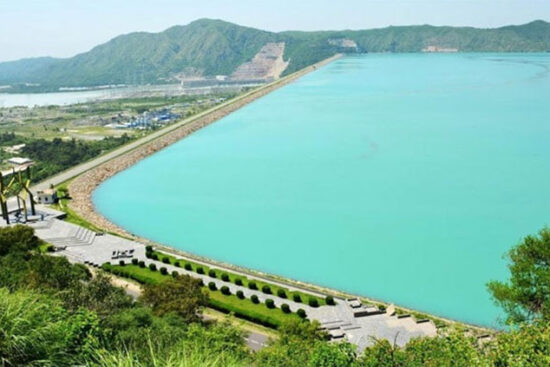
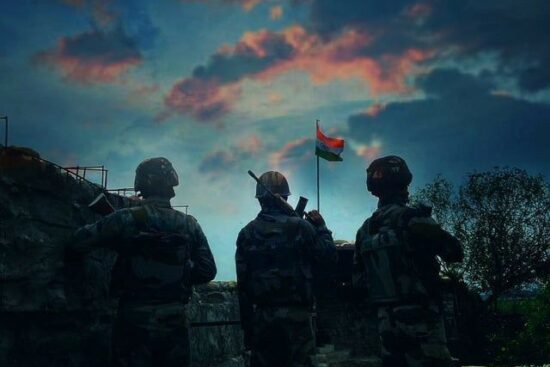








Leave a Reply